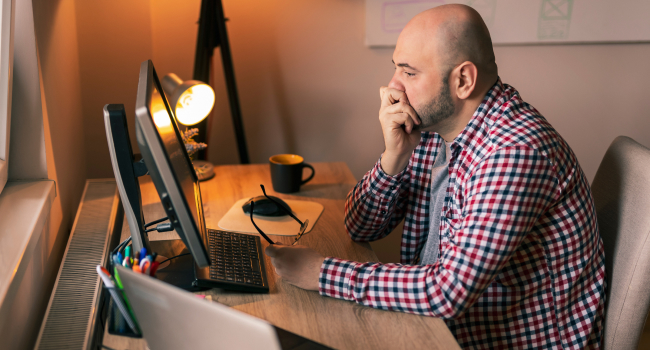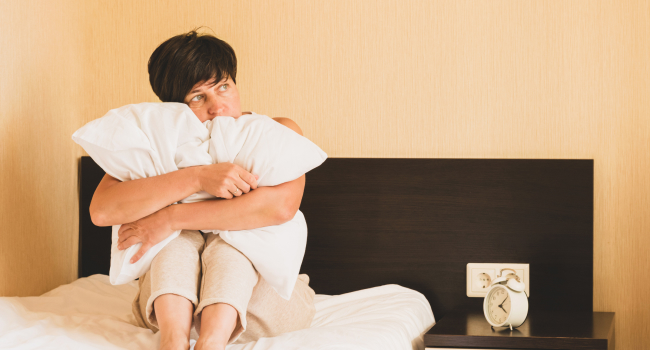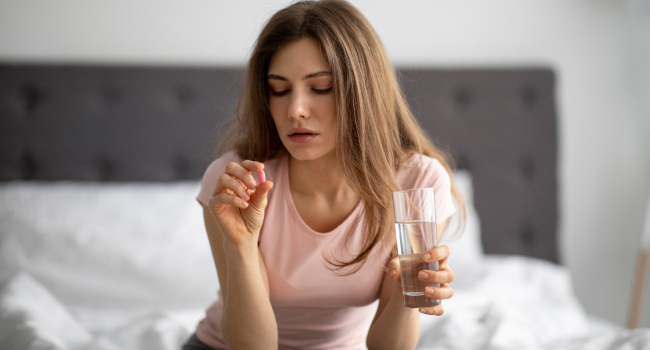Sudden chest pain is typically a concerning symptom, often associated with cardiac problems like heart attacks. However, it can also be caused by other conditions, including generalized anxiety disorder or panic attacks.
Because of the perceived risk of heart attack, it is essential to see a doctor if you experience chest pain. However, if you have an anxiety disorder or a panic disorder, it’s also important to know the difference between chest pain caused by heart issues and anxiety. This knowledge will help you better recognize the symptoms and know how to cope with them.
Note: If you have crushing or persistent chest pain, immediately contact your doctor or seek emergency medical care.
Prevalence of Anxiety-related Chest Pain
Research data indicate that approximately
The prevalence of chest pain developed because of anxiety is higher than previously thought. According to a
What Does Chest Pain From Anxiety Feel Like
Anxiety-induced chest pain can manifest in several ways. It can feel like pressure or tightness on the chest as if something is constricting it. Some people describe it as a heavy weight on the chest or a squeezing sensation. The body’s stress response prompts the release of stress hormones, which can
Others may feel sharp or stabbing pains. The pain may also radiate to the jaw, back, arms, or neck, which can resemble the symptoms of a heart attack. However, it’s essential to keep in mind that chest pain linked with anxiety is usually short-lived and commonly triggered by increased stress or panic.
How Does Anxiety Cause Sharp Chest Pain
The link between sharp chest pain and anxiety can be found in the brain and the body’s mechanism to protect you. Anxiety is a standard way your body responds to a perceived stressor, whether real or imagined. In this state, the body’s stress hormones get you in a fight-or-flight mode to prepare to battle or run away from the perceived threat. Several physiological processes linked to this response can cause acute chest pain. These include:
- Increased heart rate. The high heart rate causes a feeling of pounding in the chest. It also causes coronary artery spasms and heart palpitations resulting in varying forms of pain.
- Increased blood pressure. High blood pressure can heighten the demand for oxygen, placing an extra strain on the small blood vessels because the blood flow increases, causing pain.
- Muscle tension. Stress often manifests itself through tensing muscles, which can result in tightening muscles in the chest.
- Hyperventilation. This often happens due to shortness of breath, which can affect carbon dioxide levels in the blood. Low levels of carbon dioxide in the blood result in tingling and lightheadedness.
How to Tell If Anxiety Is Causing Chest Pain
Chest pain is one of the panic attack symptoms but it can also be caused by another anxiety disorder. Chest pain may develop gradually or occur all at once. It is, however, more common for chest pain to occur during sudden panic attacks or after prolonged periods of severe anxiety. It’s important to watch for other anxiety symptoms, such as:
- Dizziness
- Faintness
- Breathlessness
- Feeling numb
- Sweating on the feet and hands
- Changes in the body temperature
- Heart palpitations
- Trembling
Anxiety Chest Pain vs Heart Attack Chest Pain
Anxiety-related chest pain and heart attack symptoms may appear quite similar but they differ in many ways.
Aspect | Chest pain because of anxiety | Chest pain because of a heart attack |
Location | Typically felt in the center of the chest and usually stays in one place. | Usually felt in the middle or left side of the chest, with possible spread to the jaw, left arm, or neck. |
Pattern of pain | Acute, sharp, or hurting, could be periodic or ongoing. | The sensation of pressure, tightness, and squeezing; frequently enduring. |
Duration of pain | Shorter in duration. Usually lasts between 10 to 30 minutes. | May last up to several hours. |
Triggers | Stress, anxiety attack, or panic attack. | Physical exertion; sometimes may happen during rest. |
Accompanying symptoms | Hyperventilation, dizziness, and irritability. | Sweating, nausea, and breathlessness. |
Relief | Usually gets better with rest or relaxation. | Usually not eased by rest. |
The above-mentioned comparison is general and cannot replace a consultation with a medical doctor. Consult your clinician if you have disturbing symptoms and suspect heart problems.
How to Relieve Chest Tightness from Anxiety
If based on a consultation with your healthcare provider you know that your chest pain is a sign of acute anxiety, you can refer to some of the following techniques.
Deep Breathing
Taking focused deep breaths can calm your mind and body. Deep
Relaxation Exercises and Meditation
Meditation and journaling help calm your mind and brain and slow down anxious thoughts. Positive visualization can also help you handle stressful situations you cannot avoid. In addition to self-led meditations, you can use numerous apps with on-demand audio explanations of exercises, many of which are free.
Regular Exercise
Physical activity has shown effects in
Sufficient Sleep
Lack of sleep is linked to depression, anxiety, and other mental health conditions. You should sleep 7-9 hours to maintain optimum performance and good health, including reduction of anxiety symptoms.
Limited Use of Caffeine, Nicotine, and Alcohol
These substances may appear to have a relaxing effect, but
When to See a Healthcare Provider
If you are experiencing chest pain, get medical help right away, especially if:
- It’s intense and prolonged.
- It spreads over the back, jaw, neck, and arms.
- It is accompanied by sweating, nausea, and discomfort.
- You have a history of heart problems or risk factors.
- Pain is brought on by exertion.
In Conclusion
If you experience chest pain accompanied by anxiety symptoms, then it is highly likely caused by anxiety or panic attacks. However, it’s crucial to see a healthcare provider if you feel anxious about any psychological or physical symptoms.
It’s also important to treat anxiety if you get diagnosed with it. Medical providers at MEDvidi are ready to create a personalized plan for you, including medication (if deemed necessary) and recommendations on lifestyle changes.













